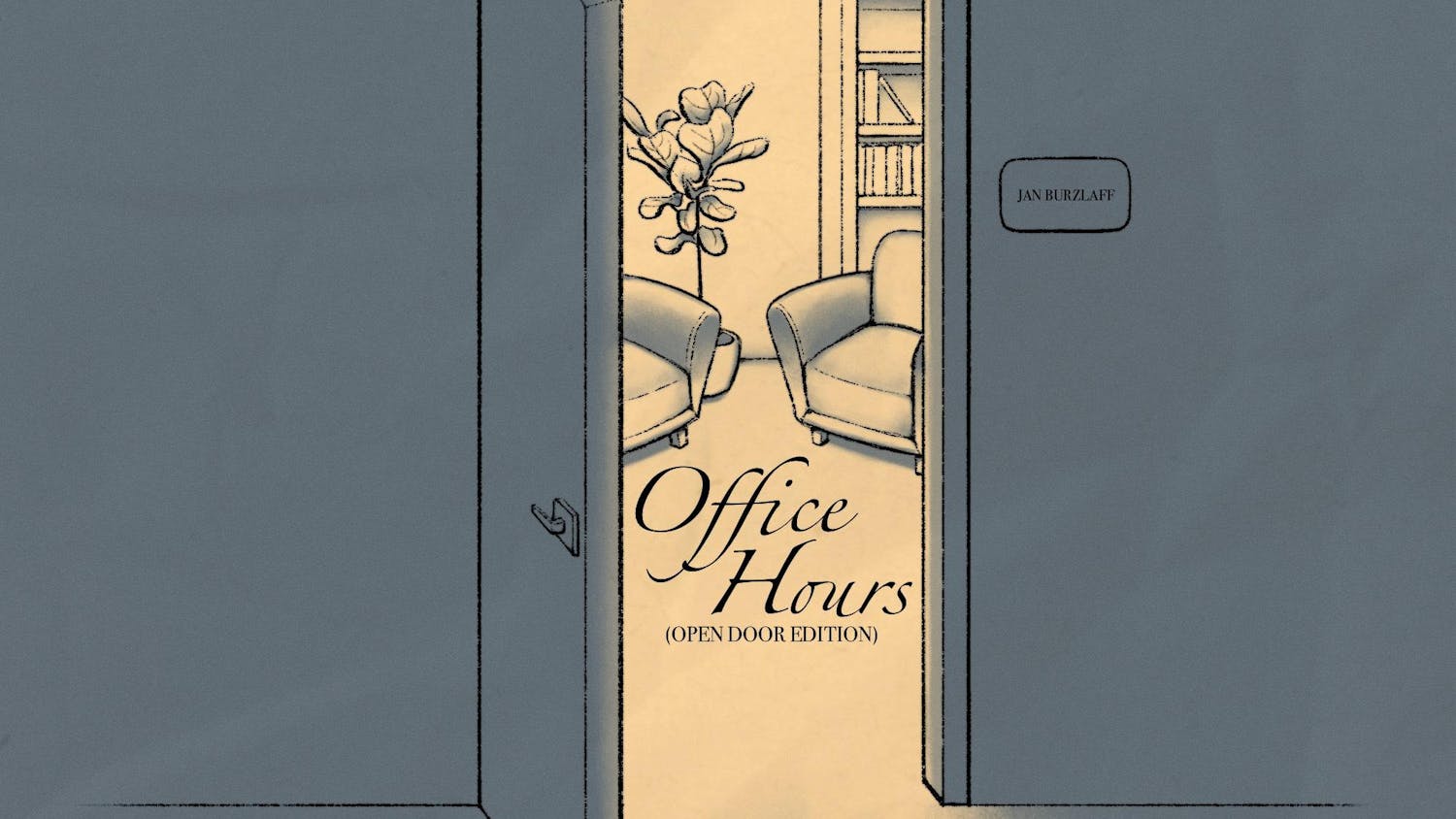On March 13, 2024, then-Provost Michael Kotlikoff offered a full-throated defense of his decision to host Ann Coulter, a right-wing provocateur with a history of racist and antisemitic comments, on Cornell’s campus. An earlier visit by Coulter had been disrupted by student protests — the Provost wanted to give her a second bite of the apple.
Kotlikoff wrote: “I agreed that there could be few more powerful demonstrations of Cornell’s commitment to free expression than to have Ms. Coulter return to campus and present her views. This is certainly not because I agree with what she has to say, or because I feel that the content of her presentation is important for our community to hear, but because I believe that Cornell must be a place where the presentation of ideas is protected and inviolable.” Kotlikoff emphasized that the university should not engage in viewpoint discrimination: “Shielding students or others in our community from viewpoints with which they disagree, or filtering campus speakers based on the content of their presentation, undermines the fundamental role of a university.” This theme was repeated in now-President Kotlikoff’s March 31 op-ed in the New York Times.
In spite of protestations by many — including those who wrote a letter to The Sun, titled “Jewish Students and Faculty Speak Out Against Coulter” — University leadership staked out a position that the platforming of hateful and hurtful presentations, was a “powerful demonstration” of the University’s commitment to free expression.
Fast forward to Wednesday morning, April 23, when the campus received an email announcing that the performer selected by students to headline this year’s Slope Day had been uninvited by President Kotlikoff. The grounds were that the artist, Kehlani, the first Black woman headliner, had “espoused antisemitic, anti-Israel sentiments in performances, videos, and on social media.” No evidence for the first claim was provided: faculty have asked for such evidence, particularly of comments that were antisemitic, separate from those that were critical of the government and policies of the state of Israel or of an ideology, such as Zionism. Kehlani herself has explained that her protests are against the State of Israel and Zionism, not against Jews.
As we wait for the President’s reply, we might reflect on the differences between Coulter and Kehlani. Coulter was given a prominent platform to share her views, accompanied by a robust defense of free expression. Kehlani was first censored and then, after having agreed to the content restrictions imposed upon them, disinvited. We have gone beyond “shielding students ... from viewpoints with which they disagree.” Kotlikoff determined it was sufficient for Kehlani to even have such views — whether expressed or not — to bar them from performing. While Kotlikoff had distanced himself from Coulter’s views, he insisted the “fundamental role of a university” was to provide a place in which they could be presented. Kehlani, by contrast, was publicly repudiated and defamed, with a meager concession by Kotlikoff that “any artist has the right in our country to express hateful views.” In “our country,” but not — it seems — in a University whose “fundamental role” seems to have changed in the last year.
The inconsistency of celebrating free expression in the New York Times only to censor and cancel it three weeks later is obvious. Accordingly, President Kotlikoff leans heavily on Slope Day as an exception: It is a “cherished tradition,” the “signature social event” of the year, and a day for “uniting our community, not dividing it.” But we cannot condemn Kehlani’s views as having no legitimate place at Slope Day without also condemning those students who were looking forward to attending on the basis of those views. When President Kotlikoff acts to “ensure community,” who does he drive out? If we are going to now be screening artists on the basis of their political views, as he has suggested, who will be drawing the line and on what basis?
Cornell leadership seems to believe that by censoring speech we can avoid being further targeted by the federal government or putting a “bullseye on our back.” In fact, it makes us the instrument of the Trump administration’s far-reaching assault on the First Amendment and civil society. As stated in a recent letter signed by 550 U.S. rabbis and cantors, “We cannot allow the fight against antisemitism to be twisted into a wedge issue, used to justify policies that target immigrants and other minorities, suppress free speech, or erode democratic norms.”
The Cornell University Chapter of the AAUP condemns the cancellation of Kehlani’s performance as yet another instance of discrimination by the central administration against Palestine-related speech and expression. We call on President Kotlikoff to affirm the University’s unequivocal commitment to safeguarding academic freedom and freedom of speech and expression on our campus. Speakers and performers, just like staff, students and faculty, should not be required to censor themselves. For the University to undertake preemptive screenings of Slope Day performers’ politics would inevitably result in violations of academic freedom through viewpoint discrimination and the prioritizing of some students over others.
Signed,
Cornell University AAUP Chapter
David A. Bateman is the President of the Cornell Chapter of the AAUP and an Associate Professor of Government in the College of Arts & Sciences. His research focuses on democratic institutions, legislatures and political rights, democracy, race and racism. He can be reached at dab465@cornell.edu.
Suman Seth is the Vice President of the Cornell Chapter of the AAUP and the Stephen H. Weiss Presidential Fellow and Marie Underhill Noll Professor of the History of Science in the College of Arts & Sciences. His research interests include the history of medicine, race and colonialism, quantum theory and gender and science. He can be reached at ss536@cornell.edu.
Risa L. Lieberwitz is the Former President of the Cornell Chapter of the AAUP and a Professor of Labor and Employment Law in the School of Industrial and Labor Relations. She researches academic freedom in the university, freedom of speech, due process and the “corporatization” of the university. She can be reached at rll5@cornell.edu.
The Cornell Daily Sun is interested in publishing a broad and diverse set of content from the Cornell and greater Ithaca community. We want to hear what you have to say about this topic or any of our pieces. Here are some guidelines on how to submit. And here’s our email: associate-editor@cornellsun.com.











